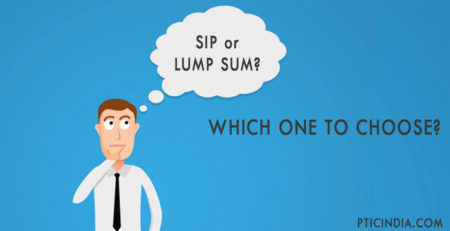We often neglect/ignore investing in insurance thinking that it is a waste of money. But have you ever thought how your family would survive after you meet with an unfortunate event and there is no way getting back?
In such a situation, if you have bought a life insurance policy, then you do not have to stress yourself out. A life insurance policy is an agreement between the insurance company and the insured, where the insurance company assures payment of the sum insured by the policyholder upon his demise to the beneficiaries mentioned in the insurance policy agreement.
The policyholder has to pay a premium to the insurance company every month against the sum insured by him/her.
The primary objective of buying a Life insurance policy is to secure your dependents, as they will receive financial assistance from the insurance company after your death.
Advantages of a Life Insurance policy
If you wish to keep your dependents financially sound to and help them lead a healthy and peaceful life even after your death, it is essential you buy the right life insurance policy at the right time.
In this fast-paced world, a life insurance policy is therefore not an option but a smart and wise choice.
- High Life Risk Coverage:
A Life insurance policy offers the policyholder coverage against unforeseen risky life events. This keeps your family, and you secured from any unpredicted and unfortunate situation that may lead to severe consequences.
- Financial Assistance
Once you have bought a life insurance policy, your family and you can have a safe and secure future. The insurance company provides the entire sum insured along with the bonus to the family of the policyholder in case of any unforeseen and unfortunate event costing the insured’s life.
A life insurance policy also protects individuals who are aging and have a shrinking income such as accident victims or retiring staff members. Many plans are available to meet the varying requirements.
- Better Returns:
A life insurance policy provides a better return on investment as compared to other investment schemes. This is because many life insurance policies offer bonus benefits that lack in other investment schemes.
The amount you invest in policy is secure and will provide better returns, as the amount insured is given back either after the death of the policyholder or the completion of the insurance policy term.
- Acquiring Loans
Many people are unaware of the fact that a life insurance policy can be utilized as a safeguard to get a loan. It offers loans at better interest rates as compared to most others.
You can get a credit from the same insurance company or bank where you’ve bought your insurance policy from. An individual can get a loan amount equivalent to the surrender value of the life insurance policy.
The maximum loan a person can get also depends on the type of life insurance policy.
- Refund on Online Payments
Many people have no idea about this facility, but it is essential to know that the mode of transaction majorly affects the premium rates of a life insurance plan.
An insurance company offers discounts in terms of service costs if the policyholder chooses to make the premium payments online. The main reason is that the transaction is done digitally and involves no cost of paperwork.
These are a few benefits, but the sole interest remains peace of mind and security.
- Kinds of Life Insurance Policies
Every person has different needs, requirements, and desires. Also, each one has a specific budget to invest in a life insurance policy.
As such insurance companies offer a wide range of life insurance policies to meet the varying demands of the people. Other factors that are responsible for the variations are income levels, age group, etc.
Below is a list of the different types of life insurance policies that are offered by the companies.
- Term Insurance Policy
A term life insurance policy is the most simple kind or insurance policy that can be purchased by anyone effortlessly. This policy provides death coverage only for a specified period.
In case of the sudden death of the policyholder within his/her policy insurance term, the insurance company offers a previously agreed death benefit amount together (i.e., lump sum), or on a monthly or yearly payment whichever suits the beneficiaries.
- Endowment Policy:
This type of life insurance policy is also called a traditional life insurance policy. It is a perfect blend of insurance as well as savings.
A set amount invested by the policyholder against the life insurance policy, while the insurance provider spends the remaining money.
If an endowment policy surpasses the fixed policy tenure, then a maturity benefit is provided by the insurer to the insured.
As endowment policy offers a part as investments, the risks are lower, as such the returns are also lesser as compared to other products/services.
- Child Insurance Policy
A child plan serves as a mode of generating funds of an insured child’s future either for education or for marriage.
Usually, insurance companies offer part payments in installments or a yearly payment or a 1-time payment once the child insured reaches the age of 18.
In case the insured child passes away due to an unfortunate and unpredictable event within the policy tenure, the covered child’s parents receive the payment immediately by the insurance company.
- Whole life plan
This plan provides coverage to the policyholder as long as he is alive. Some insurance companies offer insurance to cover an individual up to the age of 100 years under this plan.
A whole life insurance plan provides extensive insurance coverage as compared to term insurance. The total sum insured is decided at the time of buying the full life insurance and is payable to the mentioned beneficiary after the death of the policyholder along with the calculated bonus benefits.
- Money Back Plans
As per a money back policy, the insured receives a part (a decided percentage) of the guaranteed amount at regular intervals pre-handily agreed by the insurance company with the consent of the policyholder.
It is a common and unique life insurance policy, and payback facility is called survival benefits.
Reasons why shouldn’t you consider canceling your life insurance policy
We all decide to invest in a life insurance policy to safeguard our loved ones from any problems they might face after us.
But there are times when we think we should discontinue/cancel our life insurance policy because the premiums are getting burdening or you are intimidated by someone that it is a waste of money or whatever be the reason.
But we should stop ourselves from such diverting thoughts and for once carefully think before terminating any policy, especially a life insurance policy.
It is mandatory to have insurance coverage if you have a family that is financially (monetarily) dependent on your income or if you have amounts of loan that may become burdensome for your near and dear ones once you are no more.
Below are some important reasons that will help you understand why you shouldn’t cancel/terminate your life insurance policy.
It is a massive misconception that your debts will pass away along with your death. It is so not true. After you, your family will have to clear the money to all who have paid in during your life. As such if you have any wealth and worthy valuables (including your house or any other property), that will be utilized to clear your debts. After all the debts are paid off, the remaining saves and valuables will be handed over to the nominees.
But if you were wise enough to invest in a life insurance policy, the payment made by the insurance company to your beneficiaries against the insurance cover would be beneficial at this time.
You would have the option to utilize it to pay off the debts leaving the rest for financial assistance to your family.
If you cancel your life insurance policy during its tenure midway, it will only lead to wastage of your hard-earned money.
One of the most plans that are preferred by many is a term insurance plan that provides benefits to the beneficiary by paying the amount wholly and wholly (i.e., in a lump sum) after the death of the policyholder provided the insured dies within the policy tenure.
If you tend to cancel such a policy during the tenure (term of a policy), you will not receive a penny for all the premiums you have paid against the term insurance.
But the case in a whole life policy is not the same as there is entirely no investment factor added to it. As such, a term life insurance policy is an inexpensive and straightforward choice.
The rate of premiums tends to increase with your age. As such your premiums will become costly depending on your age.
An insurance company works on the idea of a person’s average life span, thus making policy more expensive the higher your age is.
If you decide to cancel your policy midway now, and they tend to re-apply for it some years later, one thing is sure to change, and that is your age. You can stop a life insurance plan, but age is beyond your control.
So if you cancel your life insurance at an early age thinking you will get the same benefits when you apply later, you will surely be able to reap the same interests, but this time you will have to pay a higher price. Because as you age, your premiums will increase and your insurance policy will become expensive.
A very similar theory applies to your health/medical conditions. If you decide to purchase a system with some pre-existing medical severe issues, it will directly affect your plan.
The disease will determine the amount of premium you will have to pay.
The more serious the medical condition, the higher the premium you will pay. As such when you cancel a life insurance policy when you are young, fit and healthy and later develop any severe health issues, you will have to shell out more from your pockets to avail the policy that time.
However, if you later change your work and join a company as a sales executive who rides on his bikes for hours together on the road, the risk of accident or any damage increases. As such, you become a person riskier to provide coverage.
A mere change in your postcode may also affect the price of your life insurance policy. However, this is not followed by all the insurance companies, but some still have this policy intact.
A few insurance companies take into account the very first three letters and numbers of your postcode and scan them through their computer data system to find out your risk factor.
Individuals residing at postcodes that involve poor areas may be charged higher premiums keeping in mind the risk factor involved.
As reports and statistics suggest that people who live in deprived parts have higher chances of dying at an early age as compared to those who live in good and wealthy parts of the city.
Discontinuing or canceling a life insurance policy is a personal choice.
However, it is strongly recommended that you find another alternative instead of terminating your plan because if you do so, you will be the one at a loss.
If you are finding it difficult to pay the premium, talk to the concerned company and opt for a cheaper policy or find out other ways to help yourself.
But do not be without a policy. Even if this thought comes in your mind after everything, focus on the reason why you opted for a life insurance cover in the first place.











